Tumblr home for the NYC-based theatre company, crafting plays that explore human grace and darkness, through popular genre forms and other cultural touchstones. www.gideonth.com
Don't wanna be here? Send us removal request.
Text
Modest Proposal
I got an email from a distributor. He was asking for scripts that are three minutes long. If your script is accepted, they will then either take the audio you recorded or allow you to record at their space, then they will record an introduction, create an image and release the show.
In return, there's no offer of money. You will then share 50% of the IP of the story with the distributor. There's no mention of who owns the audio, but I'd have to assume the distributor.
This was on a larger list of people and this distributor was respectfully called out for being a predatory IP farmer, and the distributor's response to that was also respectful and curious about what was wrong with the ask, and what a better proposal might be.
(If you feel so compelled, please don't harass or seek out this distributor - I just described the email so I could answer it here.)
Intellectual Property is a really tangly thing. The person who invented the story owns it... but we're all standing on the shoulders of giants and ever since the Medicis, we've all been hoping someone would buy what we make. In the modern capitalistic world, nobody is going to buy anything that they can't sell for more - and that's the rub.
How much more? And who gets to keep it?
If a person creates something and you want to utilize its value, then you either need to allow them to sell it to other people or you have to compensate them. I know this is a very dry way to explain it, but if you want to live on the business side of things then you have to look at the chunks of entertainment as if they are "units that need to be moved".
A writer writes a script. A director crafts that script into a story that can be understood by everyone. Each actor creates a character. Every designer creates the world that the story exists within. So... who owns what?
If you are going to retain ownership of the final product, then your pay-scale should reflect a buy-out of future earnings. If you can't afford a buy-out, then you should negotiate a share of your future earnings.
But let me go back to the emailed proposal I got. The distributor felt that his company's ability to provide an introduction, a "kick-ass image" and distribution was enough to secure 50% ownership of the piece forever. Nobody on the list felt like this was equitable.
A better proposal would be to fund and produce and an entire season of a show - maybe 8-10 25-30 minute episodes - and then share the revenue from ad sales on the feed. If. distributor is willing to do that, then that's a start for a better offer.
Gideon was offered a low-end budget that didn't quite cover the cost of a season of a podcast, then 30% of the ad sales and 33% of the IP when it went to market. The offer they made included huge marquee-name actors, and it was a film company that intended to make it into a movie. After some not very-intense soul-searching, we walked away.
While we don't regret saying no, it's a pretty good deal!!! There was nothing predatory about it and they weren't IP farming, they sought us out and wanted to make *this* show, they weren't just throwing a huge bunch of ideas into the world and waiting to see what would hit.
There's nothing wrong with IP Farming from a business point-of-view. And like any business deal, you have to offer the price you can afford and see if the seller is cool with that. There's no right or wrong here. But the price being offered here isn't, in my opinion, an investment that makes a sale worth it.
5 notes
·
View notes
Text
Moving Left To Right
I want to just throw out a warning to everyone who are pushing to be not only creators but also producers... Be aware of your tiny shifts from Left to Right.
There has always been a divide between Labor and Management and in the arts, many of us have to be all things at all times. We start out as laborers and then we slowly start to take over management. (Or maybe quickly, I don't know...)
As a laborer, you are always fighting to make sure your work is honored and compensated. It's very clear as an actor or painter or designer or musician that you are the most important person in the flow-chart of creation and your line-item should reflect that. And fairly soon, you get sick of people not honoring your work. Why does *their* work have financial value when yours doesn't?
So, you take over as a Producer. If nobody else is gonna give you the chance, you've gotta do it yourself.
The *second* this happens, you have to deal with The Market, and it completely changes your perspective. The creations you are unleashing on The Market have a value that you have no control over and is completely opaque. It's almost as if, say, an "invisible hand" were shoving your work's value in one direction or another.
And you have to figure out how to break even, you have to figure out how to make a profit so you can create more in the future... all while you suddenly realize you are not only still labor, but you've become *free* labor. And... it can make you look at the labor around you and wonder why their work has financial value when yours doesn't.
I've seen it time after time after time. A young actor who is desperate to get into the union decides to produce non-union work because they can't afford union artists. A writer will start designing scripts to have fewer actors, fewer (essentially) employees they'll have to pay later.
I'm just putting this out as a warning. Keep stepping outside yourself and remember to keep your passion for compensating great art alive. You will be tempted to look at your bottom line and instead of addressing The Market, you will want to address the line items in your budget. But that's what *bad* producers do - they try to pay people less instead of finding revenue that will support the work.
I know this because I do it ALL THE DAMN TIME. And it's embarrassing.
And it's why being a Producer, while maintaining your working-class morality, is *very, very * hard. And slipping Right (as we've all seen) is *very, very* easy if you allow your moral universe to be too flexible.
1 note
·
View note
Text
A.I. Doesn't Scare Me
I should say up front that 98% of my friends are just Scrambling Struggling Boobs like myself, but I know one person who is a muckety-muck when it comes to A.I. and TV/Film, and he finds the idea of creatives losing their jobs to be pretty unlikely.
Let's say you want a new episode of "Law And Order, Kitchen Confidential, Las Vegas" or whatever. (My entire exposure to Network TV is overhearing people on the subway - this might not be a real show). You're an executive and you think, "Great. I'll just ask my li' A.I computer to bang out an episode and *voy-lah*, we're done.
The problem is, these execs are total Noodges and they're not gonna shoot what they get. They're gonna have notes. Really stupid notes - they always do. "I like this but how do we RAISE THE STAKES!!!" or, like, "I find the empowered woman in this story to be off-putting"...
AND, their notes are always prescriptive. "Give the woman a dog to love, it'll make her more likeable". The AI does it, and it doesn't fix anything. "Give him a dead child to round out his character" and everything's worse now. They can't make it good.
So.
They hire a human writer for rewrites.
Now, this isn't from me, this is from a guy who not only knows these Noodge Execs, but *is one himself*. And his argument is that A.I. is actually *expensive*, and if you're gonna end up hiring a human writer, then you should just start with a human writer.
I know this is awful to say, but if you look at corporate America, these people have always found the cheapest possible way to create the widgets that they sell. This is why we have trade agreements with countries that pay their workers absolute shit. Americans like getting six t-shirts in a tube from CVS for $3, so we *kinda* don't question the conditions of the people who are making them.
Unfortunately, creatives... Like, we all know this, right? But Creative People are currently paid like crap, and the computing power it takes to replace us is expensive.
We're gonna get self-driving trucks and robot surgeons before executives are willing to pay ten grand to an A.I. software company to license a Voice Over Ripoff, when they can just pay the VO actor like shit and let them do all the work.
3 notes
·
View notes
Text
I haven't posted in a while, but this is a great place to start.
I started out in audio recording as a kid in 1986 and the started producing around 1990, and back then everything was to 2" Tape. All of the mixing was live with faders and it was all incredibly cumbersome and expensive.
BUT... before we ever sent anything to The People In Charge, we would always bounce the mix to a *cassette tape* and then go out and play it in the car with the engine on. And these were... y'know... cars from the 1980s. You had to turn the crank to roll down the windows.
The reason I was taught to do this isn't just because this might be how people actually hear it - it's because you find out what you inadvertently prioritize. If you play the piece back on crappy speakers that miss all the subtlety, you'll realize that *maybe* you're too in love with the sound of the footsteps, or *maybe* you've got the actor you love mixed too high. This doesn't mean you have to change anything! But you'll know *another thing* about your work when you hear it within a different system.
It's super important to know how people actually experience the show, but it's also great to have the piece revealed to you in a new way so you can really hear what you're subconsciously focusing on.
A recommendation to all the audio drama creators out there:
Always listen to your show in the way your audience is listening to your show.
We tend to edit using nice gear. Good over-the-ear headphones. Quiet rooms. But most of your audience will not listen to your show this way. A recent poll indicated that almost 20% of AD listeners listen with a *single* earbud in. Almost 10% listen on their phone speaker. That's a significant part of your audience that is listening in a mono environment or with tiny speakers (or both). You also likely have listeners with hearing loss in one of their ears*, and you want your show to be accessible to them. Before you release your show, make sure to listen to it at least once on a single earbud in a noisy environment. Is your show still legible this way? Can a listener still enjoy it like this, and understand all the plot beats and character moments? If not, it's a good idea to spend some more time on your edit so that they can. (And it's still definitely OK to make your show sound *great* for those who have a great audio setup! Just make sure the show still works for those who don't.) *You likely also have audience members with hearing loss in *both* ears. Transcripts are important. I'm behind in getting them posted for Metropolis, I need to get on that. (Episode 3 of Metropolis is live, BTW. Just waiting for Spotify to pick up the RSS feed before the big announcement. 😅)
333 notes
·
View notes
Photo
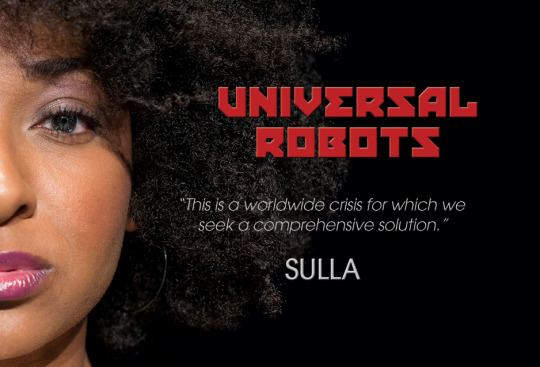
Thank you for helping us tell the story.
0 notes
Photo
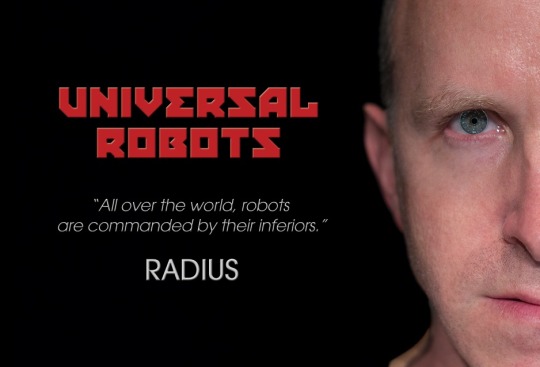
Our last performance is today at 2pm!!!
0 notes
Photo
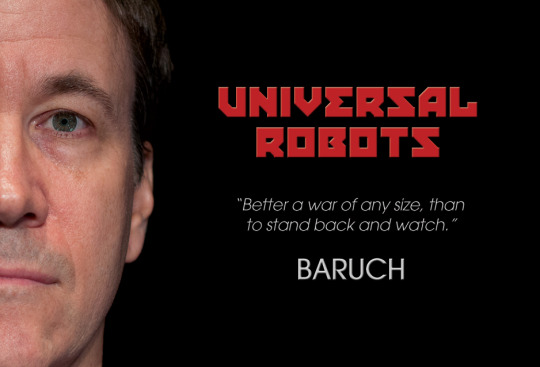
President Roosevelt sends his regards.
1 note
·
View note
Photo
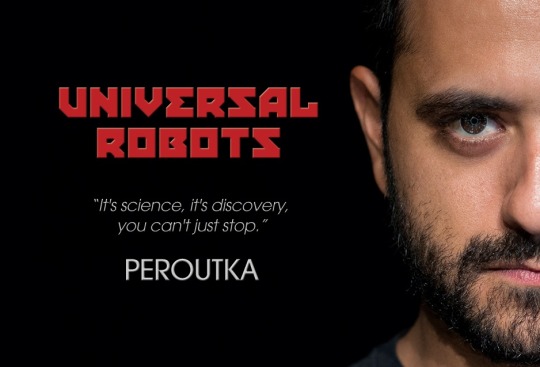
Help us unfold the future OUR way.
0 notes
Photo

Tonight's performance of Universal Robots will be Gideon's first American Sign Language interpreted performance!
4 notes
·
View notes
Photo
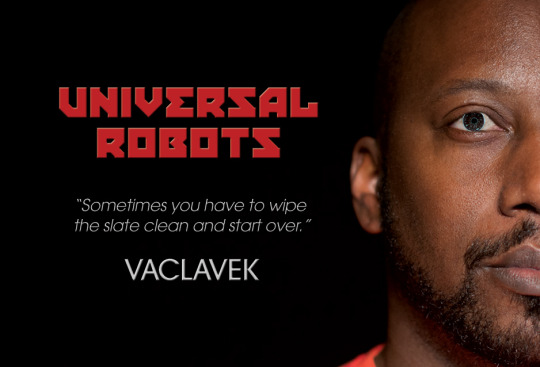
It’s the last weekend of Universal Robots! Join the revolution before it’s too late.
0 notes
Photo
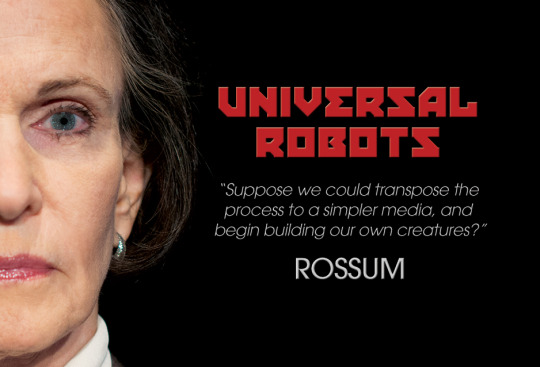
Tandy Cronyn is perfect, right down to the cellular level.
1 note
·
View note
Link
Join us Sunday for a panel of religious leaders who are also active theater artists to discuss the themes and ideas in UNIVERSAL ROBOTS by Mac Rogers. The panel includes Reverend Micah Bucey, Associate Minister of Judson Memorial Church; Isaiah Tennenbaum Marketing Director of Flux Theater Ensemble and a Jewish scholar; and Emily C.A. Snyder, Artistic Director of Turn to Flesh Productions and a Catholic theology teacher and hosted by Universal Robots producer Sean Williams (Executive Director, Gideon Productions The event will follow the matinee performance of Universal Robots and is expected to last about 30 minutes.
0 notes
Photo
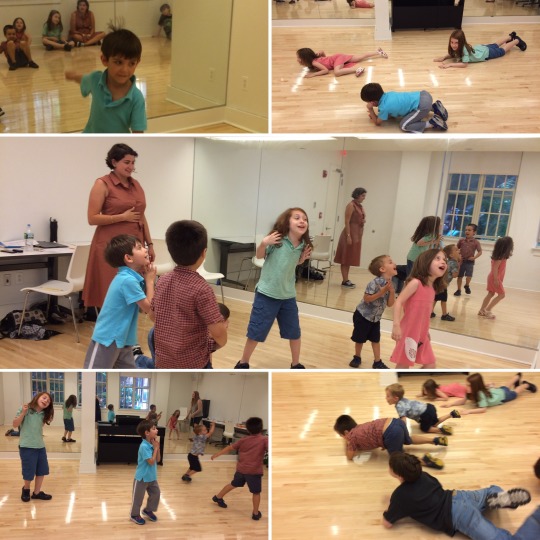
We hosted our first Family Support matinee last Sunday! Check out our MiniBots who got to create and play their own robots while their parents enjoyed a performance of UNIVERSAL ROBOTS. Thank you again to our marvelous teaching artists for keeping the MiniBots happy and engaged- Marielle Duke, Dana Sumner-Pritchard, Matilde Keizer, and Ally Tufenkjian.
1 note
·
View note
Photo
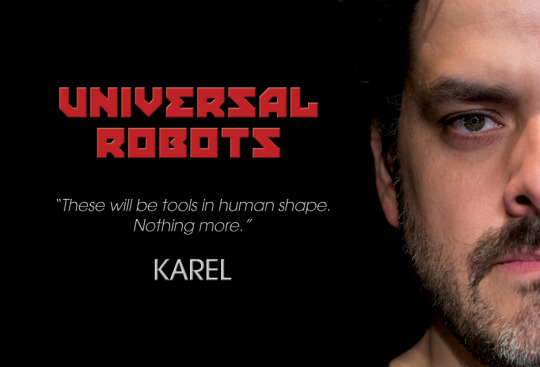
Next up in our series of magic from Pete Boisvert and Deborah Alexander- we present Jorge Cordova!
1 note
·
View note
Photo
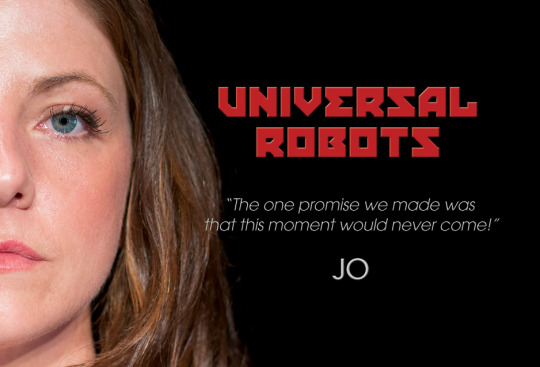
Meet Hannah Cheek as Jo!
0 notes
Link
@macrogers was interviewed on our favorite theater podcast, Maxamoo!!
5 notes
·
View notes
